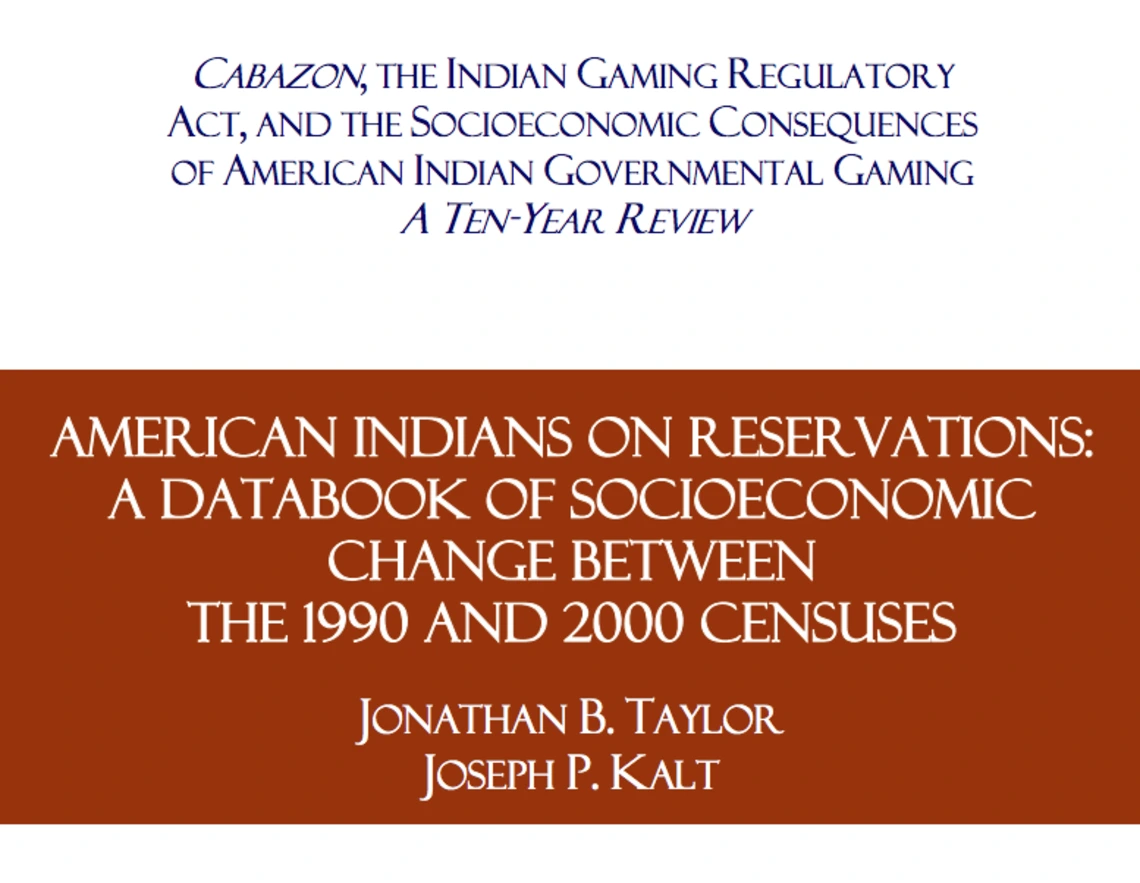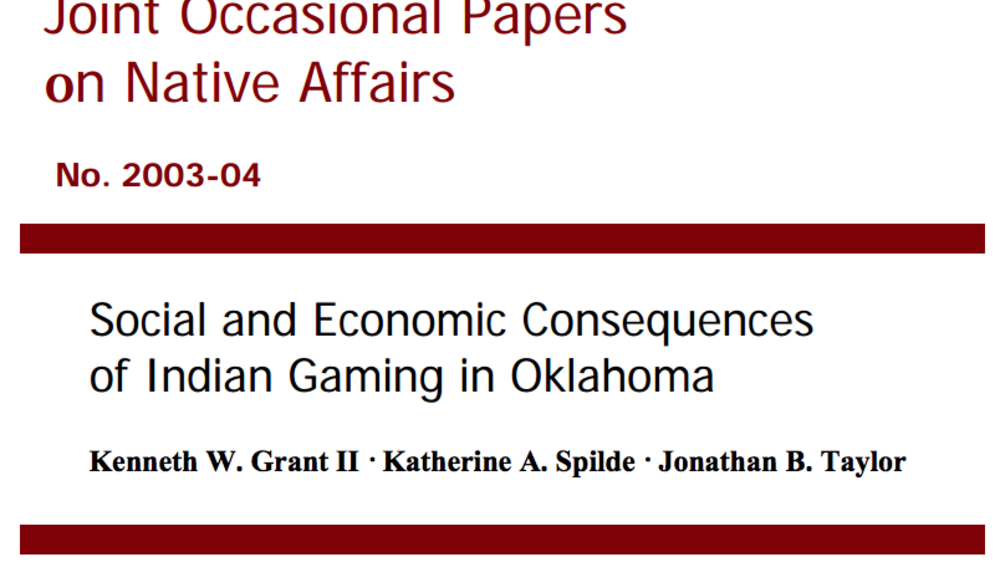This study compiles 1990 and 2000 U.S. Census data on Native Americans residing on reservations and in designated Indian statistical areas in the lower 48 U.S. States. Gaming and non- gaming areas are compared to each other and to the U.S. as a whole. Data on fifteen measures ranging from income and poverty to employment and housing conditions indicate that, although substantial gaps remain between America’s Native population and the rest of the U.S., rapid economic development is taking place among gaming and non-gaming tribes alike.
Additional Information
Taylor, Jonathan, Joseph P. Kalt. "American Indians on Reservations: A Databook of Socioeconomic Change Between the 1990 and 2000." Cabazon, The Indian Gaming Regulatory Act, and The Socioeconomic Consequences of American Indian Governmental Gaming: A Ten-Year Review. Harvard Project on American Indian Economic Development, John F. Kennedy School of Government, Harvard University. Cambridge, Massachusetts. January 2005. Report.




